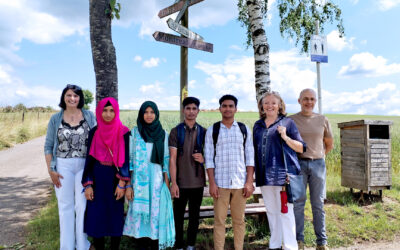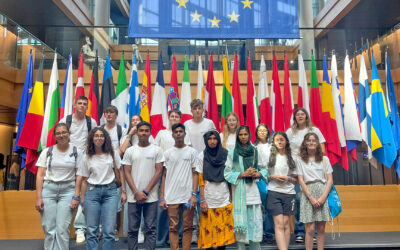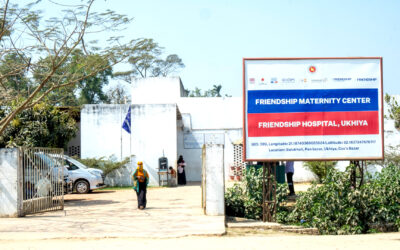A group of Bangladesh’s health workers are working to reach women in some of the country’s most isolated places, to fight back against stigma of cervical cancer
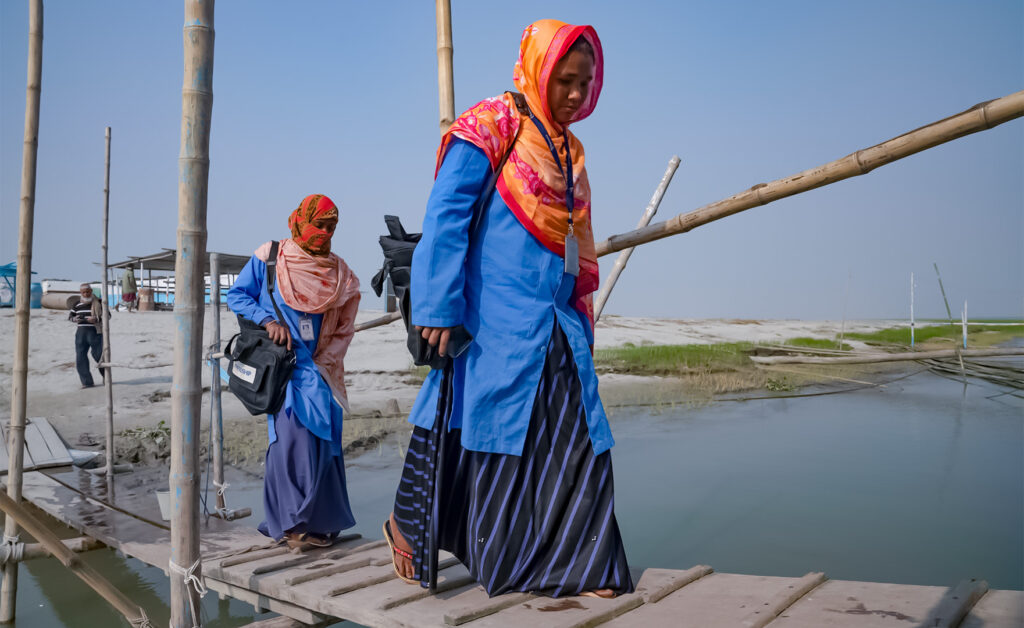
by Thaslima Begum (The Guardian)
April 13, 2023
The health workers arrive on a wooden cart, hijabs blowing in the wind, as they are pulled along a dirt road by a horse. Sand swirls in the air as children run behind, trying to keep up. When the cart comes to a stop, the health workers climb out, holding large white boxes.
“We want to reach as many of the women here as possible,” says Nagma Khatun, a paramedic working in the Kurigram district of Rangpur in northern Bangladesh. In the boxes are self-testing kits for human papillomavirus (HPV), the main cause of cervical cancer.
Cervical cancer is a growing global health challenge, with more than 604,000 new cases diagnosed worldwide in 2020 and an estimated 342,000 women killed. About 90% of the new cases and deaths occurred in low and middle-income countries, where access to preventive measures and treatment is often limited. In Bangladesh, a delta nation crisscrossed by rivers and tributaries, such access can prove particularly difficult, especially for those living on the shifting sand islands – known as chars – of the Brahmaputra and Jamuna rivers.
“These are some of the most isolated communities in the world,” says Khatun, who works for Friendship, a charity that serves Bangladesh’s hardest-to-reach communities. The organisation began operations in 2002 after pioneering one of the first NGO-run hospital ships in the world.
In Bangladesh, cervical and breast cancers are now the most common killers of women, following the pattern of the last decade in the developing world as diseases shift from communicable to non-communicable. An estimated 17,686 new cases and 10,362 deaths from cervical cancer occur annually. According to the International Agency for Research on Cancer, more than 50 million Bangladeshi women are at risk of developing cervical cancer. If diagnosed at the precursor stage, cervical cancer can be successfully treated. Friendship has been working to screen and prevent cervical cancer since it started, but in 2021, it began implementing the Prevention and Screening Innovation Project Towards Elimination of Cervical Cancer (Prescrip-tec), an EU-funded project that is focused on reaching remote communities.
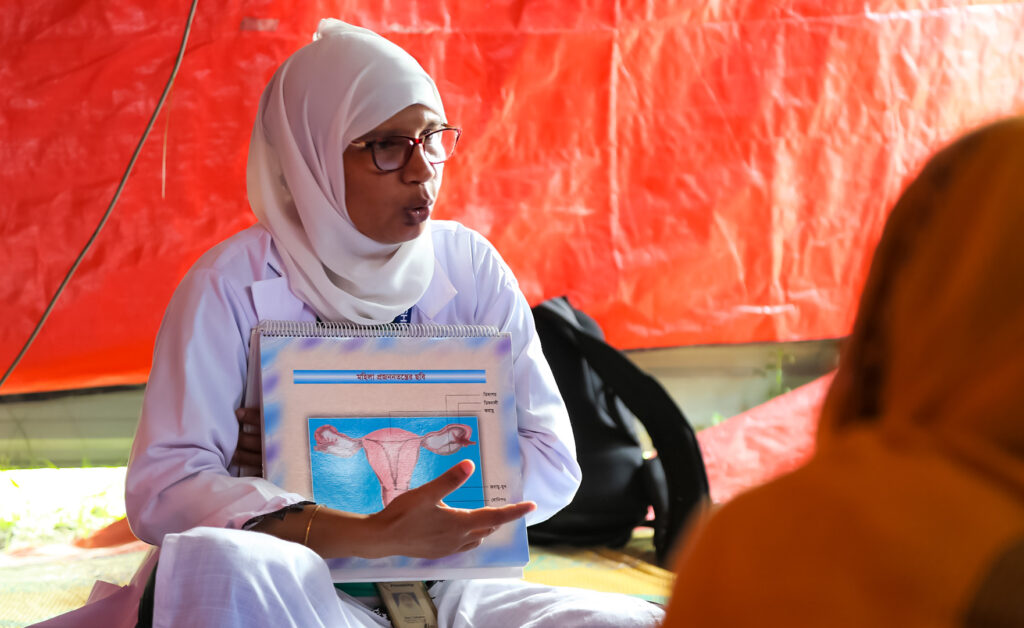
On a sunny afternoon, in a small courtyard in Kamarbashpata, a char in Kurigram district, a health-awareness session is taking place. More than a dozen women aged between 30 and 50 sit cross-legged in a circle, beneath a canopy that shields them from the sun. A mother breastfeeds her baby under her sari while a toddler scrambles on the back of another; this is a safe space and the women are invited to bring their children along so they don’t have to worry about childcare. “Awareness and community mobilisation is key to prevention but we need to make it easy for these women to attend,” says Khatun as she joins the circle.
The courtyard session is led by Sumi Begum, a Friendship Community Medic-aide (FCM), who sits at the front in a blue jacket behind a diagram of a cervix. “Cervical cancer is easy to identify and the screening process is inexpensive. But the social stigma attached to it in this remote region means that women tend to neglect the situation, letting it worsen over time,” says Begum.
She is one of hundreds of local women trained by Friendship to provide basic medical services in their community, including referrals, ante and postnatal care, nutrition, family planning and hygiene awareness.
Today, Begum is teaching the village women about the health risks arising from cervical cancer and how to prevent them. “Most women here are unaware of the detrimental nature of cervical cancer,” says Begum. “Even when they become aware, most feel ashamed to seek help as it would require an examination of their private parts.”
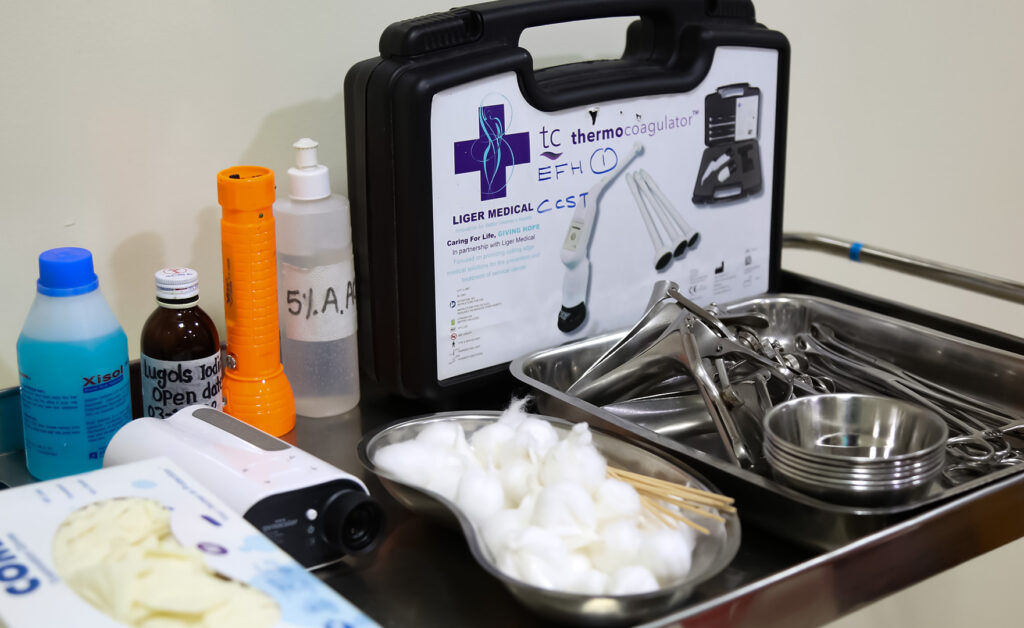
After the session, the self-testing kits are handed out and health workers are on hand for women who want to test there and then. The health workers are equipped with MHealth, a mobile-based app that helps them gather and store patient data, and connect to a doctor whenever they need.
The completed tests are sent off to a lab, and only those who are HPV positive are invited for further screening. Over the past 10 years, about 180,000 women have been screened through Friendship’s activities. Since the Prescrip-tec project began in 2021, 121 women have tested positive for HPV; 140 patients have been treated with cryotherapy and thermal ablation, while 29 were referred for advanced treatment.
Yet despite the increased awareness in the area, many women remain reluctant to participate in the programme.
Note: This article is an excerpt from an original, published in The Guardian, on April 13, 2023. The rest of the article can be read here.

